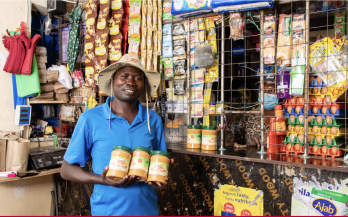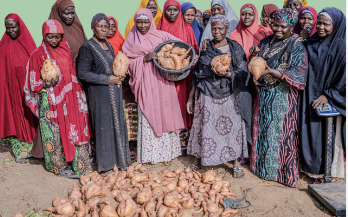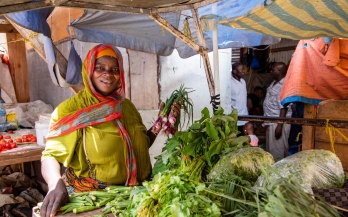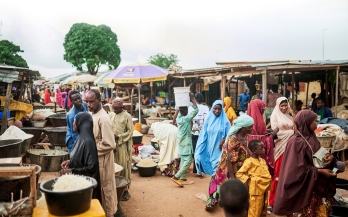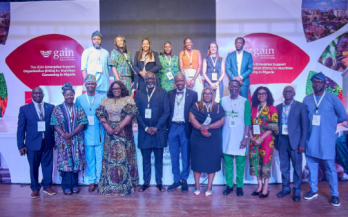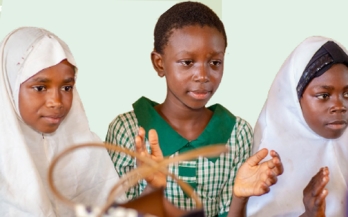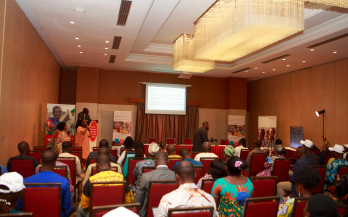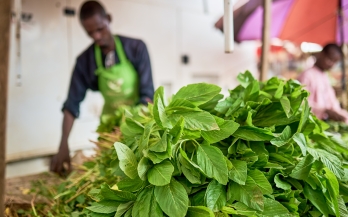On March 27th and 28th, 2025, France hosted the Nutrition for Growth Summit (N4G) in Paris. Launched in 2013 in London, N4G is a flagship international conference aimed at securing concrete political and financial commitments to combat malnutrition in all its forms. N4G brings together governments, international organisations, philanthropies, businesses, NGOs and other key stakeholders at a global and regional level to elevate nutrition as a key development agenda and accelerate progress against malnutrition. In preparation for the 2025 Nutrition for Growth (N4G) Summit, the Global Alliance for Improved Nutrition (GAIN) and the Civil Society Scaling Up Nutrition in Nigeria (CS-SUNN) hosted a Stakeholder Nutrition Dialogue in Nigeria to support the Government of Nigeria in defining the commitments to be presented at the upcoming summit.
Micro, small, and medium-sized enterprises (MSMEs) play a pivotal role in addressing Nigeria’s nutrition challenges, given their significant contribution to the local food system and economy. MSMEs are essential drivers of innovation, employment, and food production, helping make nutritious foods more accessible to underserved populations. However, MSMEs face an array of systemic barriers that hinder their growth and ability to scale sustainable nutrition solutions, such as high costs, complex regulations, and restricted access to finance. To bring together policymakers and the private sector to discuss these challenges, a Nutrition Policy Dialogue was convened by GAIN and the Scaling Up Nutrition Business Network (SBN) in Abuja on October 31, 2024. Attendees included the Regional and State Hub leads for SBN in Nigeria as well as representatives from businesses, government departments, academia, civil-society organisations, and other key stakeholders.
Through a keynote address, a panel discussion, and two breakout groups, the meeting highlighted key challenges, including regulatory overlaps, limited financial access, and policy inconsistencies affecting MSMEs. It also proposed actionable recommendations such as harmonising regulatory frameworks, developing cluster-based financing models, and enhancing financial literacy. Finally, it served to foster stakeholder commitments to training programs, advocacy efforts, and implementation of innovative financing solutions.
NUTRITION IMPACT AT SCALE (NIS) Through the Nutrition Impact at Scale project, GAIN seeks to scale the impact of its work to increase access to safe and nutritious foods, especially for low-income consumers. By working with other organisations (Enterprise Support Organisations) that are willing and have the requisite capacity to attach a 'nutrition lens' to their work with small and medium enterprises (SMEs), Nutrition Impact at Scale (NIS) will enable a large-scale and accelerated nutrition impact for the larger African population. Funded by the Ministry of Foreign Affairs of the Netherlands, NIS uses a market systems development approach to improve food systems, increase inclusivity, and, ultimately, nutrition outcomes. The project leverages on the extensive experience GAIN have developed over the years of providing quality technical assistance, networking experience, knowledge sharing, building capacity of partners, and the provision of various tools and resources to MSMEs, to attach a 'nutrition lens' to the work of ESOs in Nigeria, Benin, Uganda, Ethiopia, Mozambique, and Kenya.
Key Messages
• A 2024 preliminary assessment of the National Policy on Food and Nutrition (2016-2025) found that about a third of its targets are roughly on track but that the policy needs to be updated to achieve its potential, and to take advantage of the opportunities provided through food systems transformation. • Since the Policy would be due for full review in 2025, there is ample opportunity to evolve it to the current context and thinking.
• Some key areas a new national food and nutrition policy must expand on include: legislative frameworks, more relevant conceptual frameworks, resilience, engagement with the education sector, expanded partnerships, private sector responsibilities, wins for climate and nutrition, shifting demand away from unhealthier to healthier foods, food safety, rethinking trade policy, promoting innovation and technology, and being more responsive to the needs of women.
DELIVER Nigeria is a transformative three-year project (July 2024 - June 2027) designed to enhance the livelihoods of smallholder vegetable farmers in Kaduna and Kano states. This initiative, led by the Global Alliance for Improved Nutrition (GAIN) in partnership with East-West Seed Knowledge Transfer Foundation (EWS-KT) and Wageningen University and Research (WUR), addresses key challenges such as low yields, limited market access, high postharvest losses, and inadequate finance.
Food systems have the potential to drive inclusive growth, prosperity, nutrition, and health, or, if poorly managed, they can deepen inequalities and exacerbate poverty, malnutrition, and other poor outcomes. Data plays a crucial role in building food systems that drive positive development outcomes by providing the foundation for informed decision-making, effective policy formulation, targeted interventions, and stakeholder engagement and collaboration.
On August 29, 2024, the Global Alliance for Improved Nutrition (GAIN) hosted the inaugural Enterprise Support Organisation (ESO) for Nutrition Convening in Nigeria, themed ‘Catalysing Nutritional Innovation: Empowering ESOs to Transform Food Systems.’ This first-of-its-kind convening in Africa brought together over 150 participants, including key stakeholders from academia, the private and public sectors, development agencies, and civil society. The convening focused on the critical role ESOs (entities that provide business development services to businesses) play in transforming food systems by supporting agri-food small and medium-sized enterprises (SMEs) to overcome operational challenges, enhance capacity, and improve nutrition outcomes for underserved populations.
Approximately 11 million Nigerian children, or one-third of the population, experience severe child food poverty, significantly increasing their risk of malnutrition, including a 50% higher likelihood of wasting (UNICEF, 2024).
This mirrors a wider global issue, with 66 million children in low- and middle-income countries, including 23 million in Africa, attending school hungry every day (Bekri et al., 2023). Addressing this urgent crisis requires social protection interventions that combat child hunger and improve nutrition outcomes, such as school feeding programmes.
In response to a request from the Benin Scaling Up Nutrition (SUN) focal point, following the 2022 Joint Annual Assessment (JAA), the establishment and operation of the SUN Business Network (SBN) began with the support from the Global Alliance for Improved Nutrition (GAIN) and CARE through the CASCADE programme. The goal of the programme is to improve food security and reduce malnutrition among at least 5 million women of reproductive age and children under 5 in Benin, Nigeria, Uganda, Kenya, Ethiopia, and Mozambique. The establishment of SBN Benin started with the development of a strategic plan for 2024-2030 and mapping of potential members and partners.
Climate change is a threat to the sustainability of global and national food systems. Unsustainable food systems cannot ensure food and nutrition security or healthy eating patterns. Climate change is already altering agricultural production, food processing, distribution, and conSumption. Its impacts disrupt food supply, limiting people’s access to the diverse, safe, and nutritious foods that make up high-quality diets.



